On October 5, 2023, the former residents of Serê Kaniyê bore witness to the world’s impotence to protect internally displaced persons (IDPs). It seems that such safeguards, which are supposedly enshrined within international law, do not apply to attacks from Turkey – a NATO member with an apparent free pass to bomb whichever Kurdish civilians they choose. In this latest instance, the Turkish military’s target of choice was Rojava’s Washokani camp (its name in Kurdish means “Fresh River”).
The camp was established by the Autonomous Administration of North and East Syria in late 2019 following the Turkish invasion and occupation of Serê Kaniyê, which resulted in over 100,000 people being displaced. The current number of IDPs in the camp is 16,322, consisting of 2,630 households. The mostly Kurdish civilians who fled to the camp were forced to abandon their homes and property, arriving with basically nothing.
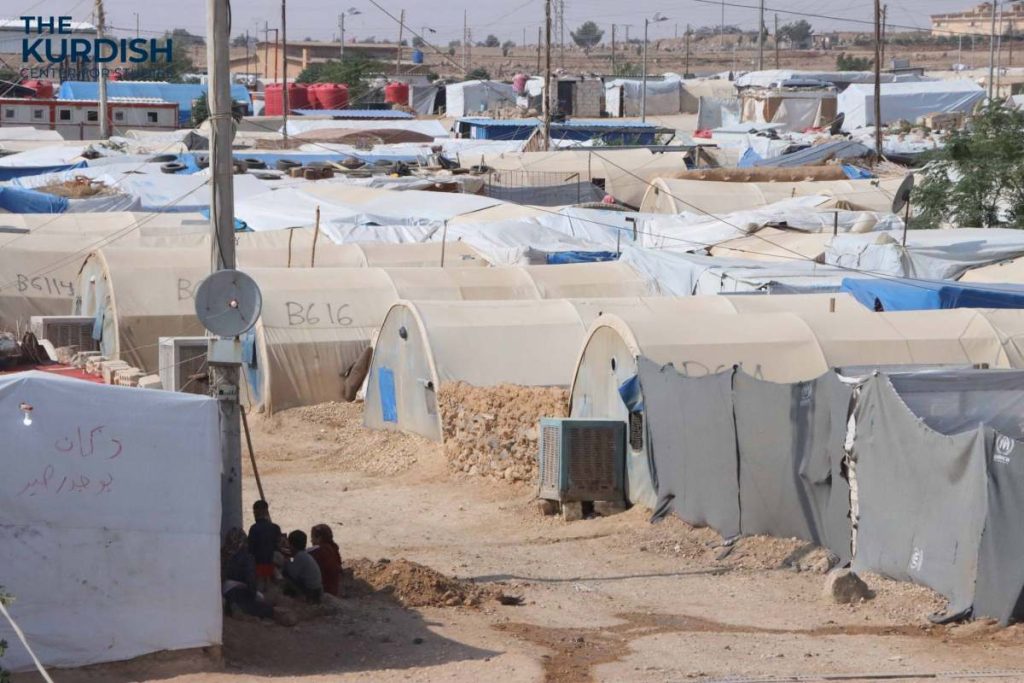
Recently, the camp, situated outside of Heseke, was preparing to commemorate the grim four-year anniversary of their city being occupied when the Turkish state once again launched an aerial attack. The people in the camp, knowing first-hand how Turkey’s assaults spare no one—be it children, women, or the elderly—fell into a state of fear, their city already having been occupied in 2019.
Despite the existence of specific provisions in international law for the protection of IDP camps, Turkey, as is its custom, flagrantly violated these regulations. Unfortunately, when it involves Kurds, the world’s laws designed to shield civilians become devoid of meaning. And while Turkey’s most recent attack thankfully yielded no casualties, it plunged the IDPs of Washokani into profound anxiety, rekindling traumatic memories of previous Turkish state attacks on their city.
In our attempt to cover the ongoing war crimes by Turkey since their October 5th aerial assault on Rojava began, The Kurdish Center for Studies (KCS) decided to visit the Washokani camp and speak with its Co-chair, Barzan Abdullah. In the course of our interview with him, he addressed the attacks on the camp, the challenges since, and the stance of NGOs working within the camp who are now having difficulties securing water and electricity because of Ankara’s continuing deliberate assault on Rojava’s infrastructure.
The KCS interview with the camp Co-chair proceeded as follows:
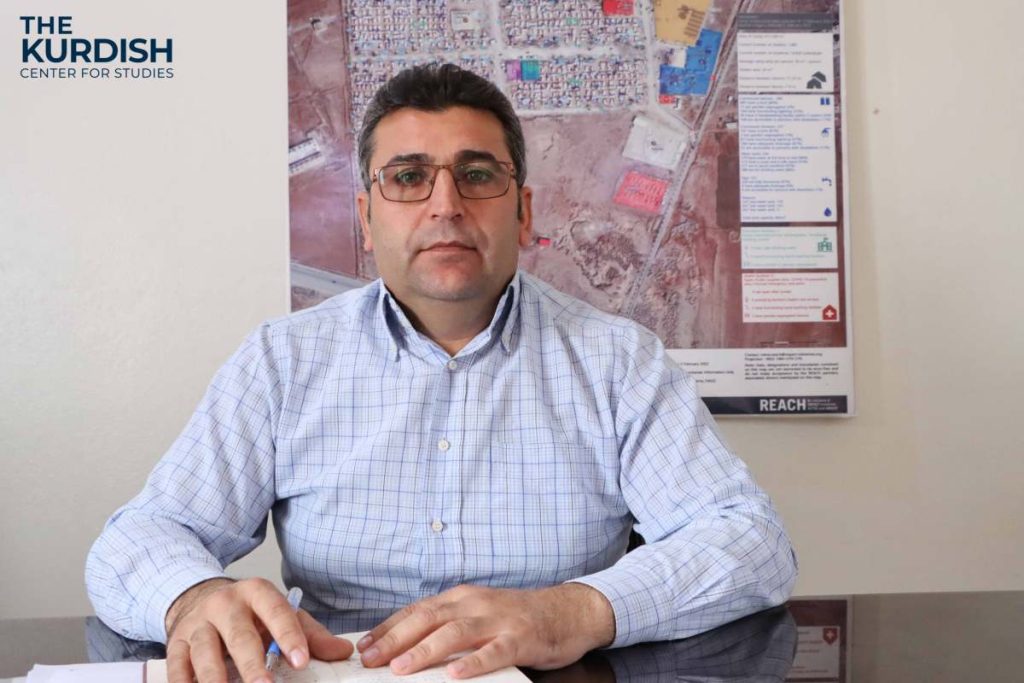
KCS: When did the attack by the Turkish government on Washokani camp take place?
Abdullah: “The attack took place on Thursday, October 5, 2023, commencing in the morning and persisting until later in the day. Four warplanes conducted strikes in the vicinity of Washokani camp.”
KCS: Was there any damage as a result of the attacks?
Abdullah: “The attack primarily targeted the western section of the camp, with numerous shell fragments landing within the tents. Consequently, the IDPs had to evacuate their tents and take shelter.”
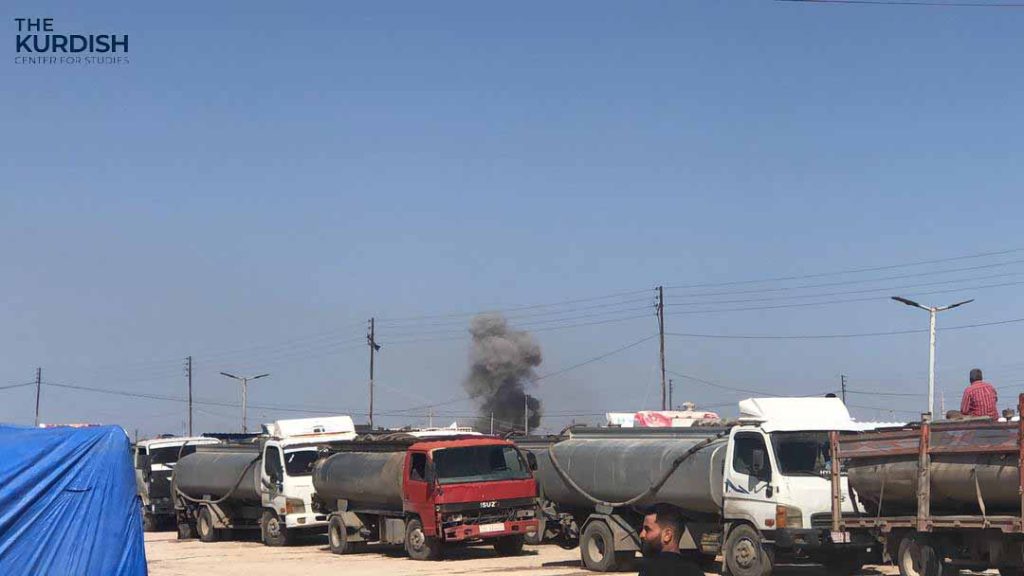
KCS: What was the overall impact of these attacks on the camp, and what atmosphere did it generate among the IDPs?
Abdullah: “On the day of the attack at Washokani camp, a memorial tent had been erected to mark the fourth year since the occupation of Serê Kaniyê. The airstrike by warplanes generated intense noise and chaos, causing significant distress among the camp’s inhabitants. People spent the day outdoors, avoiding their tents. Furthermore, the residents in the western part of the camp fled entirely. The situation was dire, leading to incidents of psychological distress, particularly among children and women. It was a brutal and terrifying attack.”
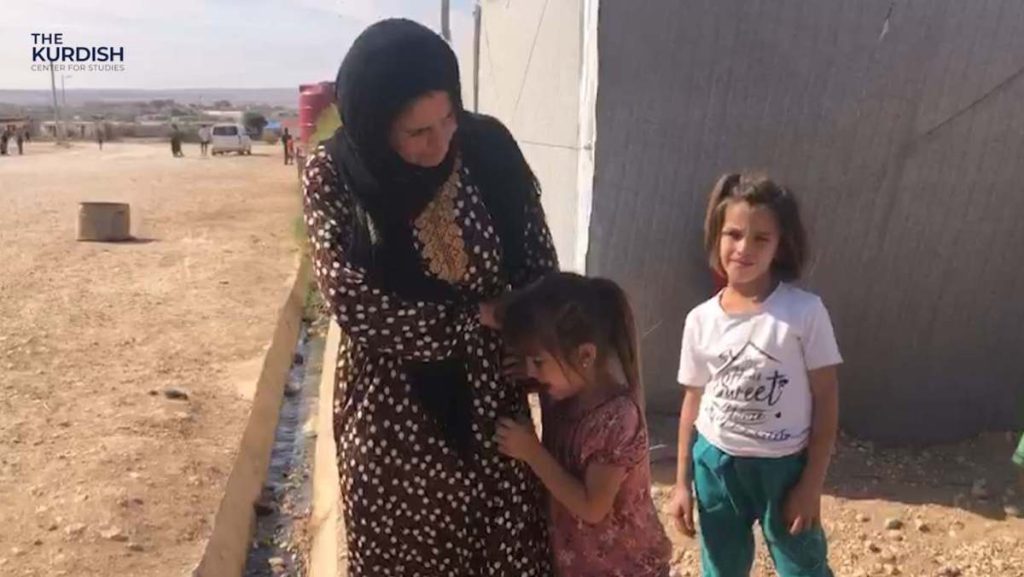
KCS: What was the response of aid and human rights organizations operating within the camp when the Turkish state attacked?
Abdullah: “Regrettably, we expected international and humanitarian organizations to rally around and support the IDPs and refugees during such challenging times within the camps. However, on the day of the attack, approximately 12 organizations were present inside the camp, all of which promptly closed their offices and vacated the premises. They only returned to the camp three to four days after the attack, leaving the IDPs in a critical situation during their absence.”
KCS: How does the camp fare in terms of water and electricity supply?
Abdullah: “The Turkish state’s attacks focused on infrastructure, including power stations and a gas plant. This significantly impacted the IDPs, leading to a two-day water supply disruption within the camp and a six-day power outage. Overall, life in the camp ground to a halt.”
KCS: How can the international community assist the IDPs at Washokani camp?
Abdullah: “On the day of the attack, we endeavored to reach out to international organizations, sending them letters and informing them of the airstrikes on our camps. The Washokani camp wasn’t the only target; the surroundings of Roj Camp and Newroz Camp in Derik also faced bombardments. The IDPs within these camps were also grappling with extreme hardship. Unfortunately, our calls for help have gone unanswered.”



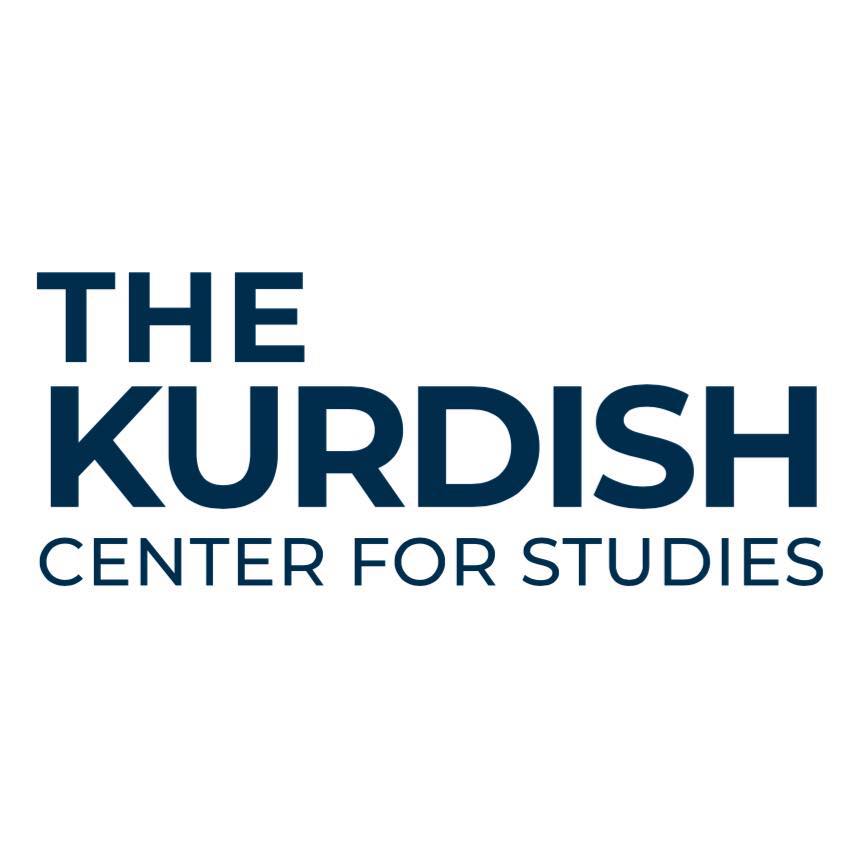
Comments are closed.